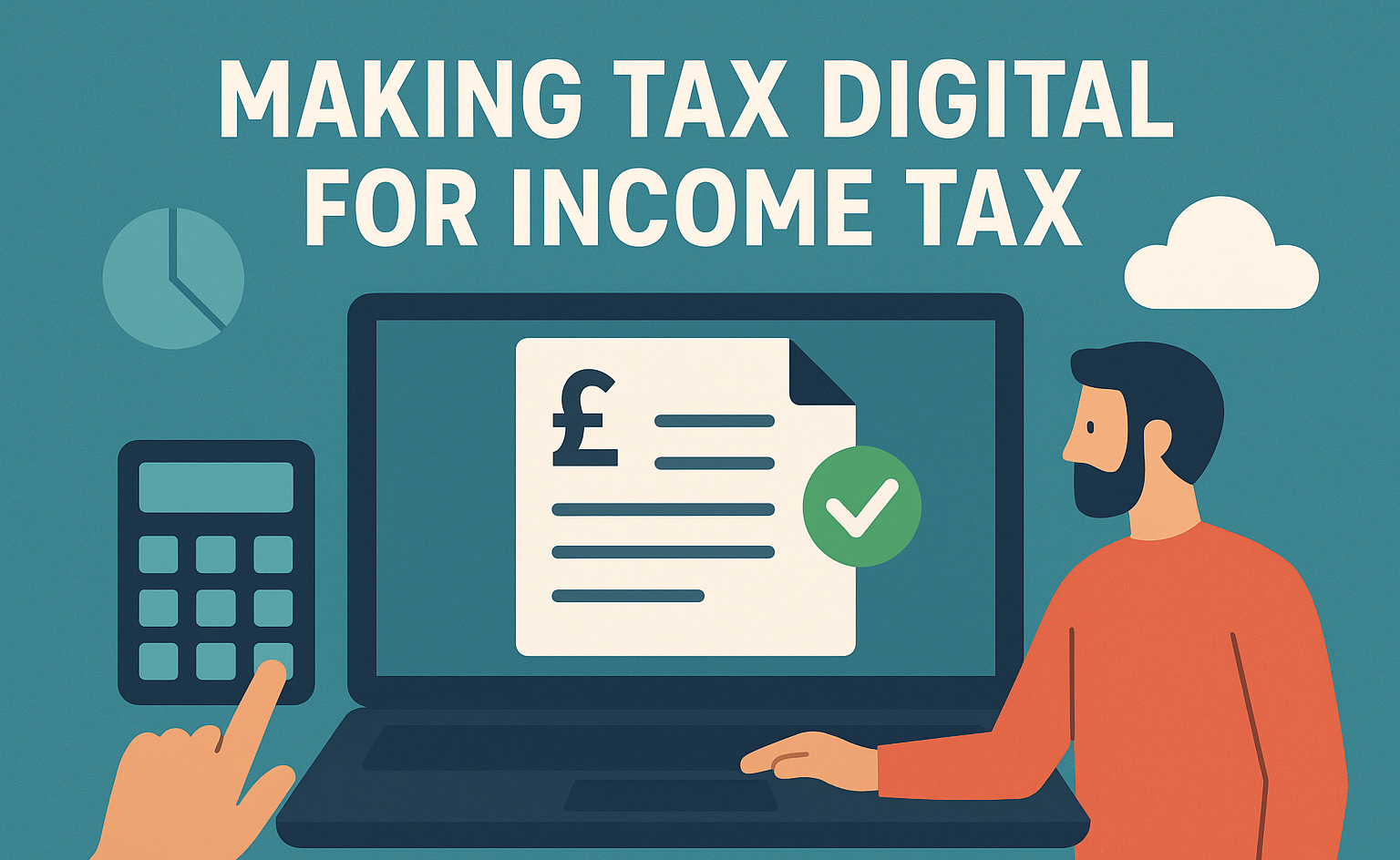July Insights
July Insights
1. Government Targets £7.5 Billion in Unpaid Tax
Focus on Business Compliance
The government has announced plans to raise an additional £7.5 billion by stepping up efforts to close the tax gap - the difference between the tax HMRC expects to collect and what is actually paid.
Figures published on 19 June show that £46.8 billion in tax went unpaid in the 2023-24 tax year. That’s 5.3% of the total tax due, slightly up from previous estimates.
Small Businesses Under the Spotlight
The data reveals that small business non-compliance accounts for 60% of the total tax gap, with Corporation Tax accounting for 40%. The most common causes are:
- Failure to take reasonable care (31%)
- Error (15%)
- Tax evasion (14%)
What's Changing?
The government has committed £1.7 billion over four years to fund more HMRC staff, including 5,500 compliance officers and 2,400 debt management roles.
Meanwhile, HMRC’s Making Tax Digital (MTD) programme continues to expand. It’s expected to generate £4 billion in additional VAT over the next four years by reducing errors. MTD for Income Tax comes into force from April 2026, and this is forecast to raise £1.95 billion in additional tax revenue by 2030.
What This Means for Your Business
With HMRC stepping up compliance efforts, now is the time to make sure your business accounts and tax affairs are in order.
While HMRC says most taxpayers pay what they owe, the pressure is clearly growing to close gaps and improve standards - particularly among smaller businesses.
2. Childcare accounts can subsidise summer childcare costs
If you have children under 12 who attend a nursery, after school club, playscheme or childminder, or you are considering sending them to a summer camp, you should think about setting up a tax-free childcare account. The government adds 25% to the amounts that you save in the account - up to £2,000 for each child - so £8,000 is topped up to £10,000 (a higher amount applies for disabled children).
The account is then used to pay Ofsted registered childcare providers. Note that it doesn’t need to be the child’s parents paying into the account; uncles, aunts, grandparents and others can also make payments, The government have noticed that many families who are eligible for this scheme are yet to set up their accounts, so if you are an employer you could bring this to the attention of your staff to increase the take up.
Note that parents are not eligible if either of them has adjusted net income more than £100,000 for the current tax year.
3. Ten Years of Free Companies House Data – and How It Can Help Your Business
It is ten years since Companies House made all digital company data freely available through its online service on GOV.UK. Since launching on 22 June 2015, the Find and Update company information tool has become one of the UK’s most heavily used public data services, with over 16.5 billion searches carried out in 2023-24 alone.
The data includes details on every UK-registered company - such as directors, financial filings, registered addresses, filing history, and company status. It’s used every day by lenders, investors, regulators, law enforcement, and businesses of all sizes to make informed decisions.
How This Data Can Help You Run and Grow Your Business
Here are some practical ways it can benefit your business:
- Check who you’re dealing with: Before working with a new supplier, customer, or partner, use Companies House to confirm their legal status, directors, and trading history. It’s a simple step that can help protect your business from fraud or unreliable firms.
- Monitor competitors or industry trends: You can view company filings, changes in directorship, or new company formations in your sector - useful for keeping an eye on competitors or spotting new opportunities.
- Improve credit control and chase debts: Knowing who legally controls a business (and where they’re registered) can help if you need to follow up on unpaid invoices. It’s also useful in preparing for legal action or insolvency procedures.
- Support funding and investment conversations: When applying for finance or pitching to investors, it helps to know how your business compares to others in your industry. Accessing competitor filings can provide useful benchmarks on growth, structure, or cash flow trends.
- Stay compliant: Seeing how other businesses meet their statutory filing requirements can help you understand what’s expected - and avoid late fees or damaging your reputation.
- Spot opportunities to expand: Looking at newly registered businesses in your area or sector can help you identify potential customers, partners, or gaps in the market.
4. Earning Extra Income? You Might Need to File a Tax Return – Here’s What to Know
If you earn extra income from a side hustle, you could be legally required to register for Self-Assessment and complete a tax return - and it’s better to get ahead of it now, rather than wait until the January deadline. The threshold is simple: if you earn more than £1,000 in a tax year from any additional income, you may need to file. This applies whether you’re selling online, renting out property, freelancing, creating content, dog walking, tutoring, or even trading crypto assets.
Why Act Now?
Filing early means you:
- Avoid the stress of the January rush
- Know what you owe sooner, so you can budget or set up a payment plan
- Get peace of mind by knowing your tax affairs are in order
- You don’t need to pay immediately - the deadline for payment is still 31 January 2026 for the 2024-25 tax year - but getting your return done early gives you options and avoids surprises.
5. Government Unveils Roadmap for Employment Rights Bill
Following publication of the Employment Rights Bill in October 2024, the government has published a comprehensive implementation roadmap. The roadmap outlines a phased timeline for one of the most significant overhauls of UK employment law in decades.
Aimed at raising living standards and strengthening workplace protections, it’s estimated that the reforms will affect around 15 million workers, or half of the UK workforce.
The Bill, which has passed through the House of Commons, is now at the Report Stage in the House of Lords.
Key Changes and Implementation Timeline
The Employment Rights Bill will be introduced in phases, beginning shortly after its passage through Parliament and extending into 2027. The government has said this staged approach is intended to give businesses the clarity and lead time needed to plan and adjust.
Here’s a broad outline of when key changes are likely to take effect.
Immediate (once granted Royal Assent):
- Repeal of the Strikes (Minimum Service Levels) Act 2023 and most of the Trade Union Act 2016.
- Protections against dismissal for workers involved in industrial action.
From April 2026:
- Statutory Sick Pay (SSP) eligibility extended by removing the lower earnings limit and waiting period.
- Day one rights to paternity leave and unpaid parental leave.
- New whistleblowing protections.
- Creation of the Fair Work Agency to enforce employment rights.
- Doubling the maximum period of the protective award in cases of collective redundancy.
- A package of trade union measures, including simplifying recognition processes and electronic and workplace ballots.
From October 2026:
- Legislation to ban fire and rehire practices.
- Establishment of a fair pay agreement negotiating body for adult social care in England.
- Strengthened tipping laws, requiring consultation with workers on fair distribution.
- Employers required to take “all reasonable steps” to prevent sexual harassment.
- New duties on employers to prevent third-party harassment.
- Further trade union rights and protections, including stronger safeguards for union reps.
In 2027:
- Enhanced dismissal protections for pregnant women and new mothers.
- Bereavement leave for workers.
- End to exploitative zero-hours contracts, with requirements for predictable hours.
- ‘Day one’ rights to unfair dismissal protection.
- Expanded access to flexible working arrangements.
- Gender pay gap and menopause action plans (to be introduced on a voluntary basis in April 2026).
- Clarified requirements for preventing workplace harassment.
- A modern framework for industrial relations.
Business Implications
For employers, the roadmap presents a number of changes that will require preparing for and adapting to over the coming months and years. The Government has stated it will publish detailed guidance ahead of each implementation date, alongside additional support via organisations such as ACAS.
The reforms are likely to increase employers’ responsibilities in areas such as record-keeping, employee relations, and compliance with new procedural standards. Hospitality, social care, and retail businesses, which often rely on flexible contracts or lower-paid workforces, may be particularly impacted.
The roadmap also signals a shift in the relationship between employers and trade unions, with increased access rights and simplified processes for recognition and balloting. The expansion of employment protections from day one represents a significant departure from the current law.
Looking Ahead
Having clear timelines and advance publication of guidance should help with navigating the changes. There are also indications that there will be further consultations in some areas to make sure that the measures implemented will be practical.

Edited by - Peter Burns - Senior Client Manager at England & Company










